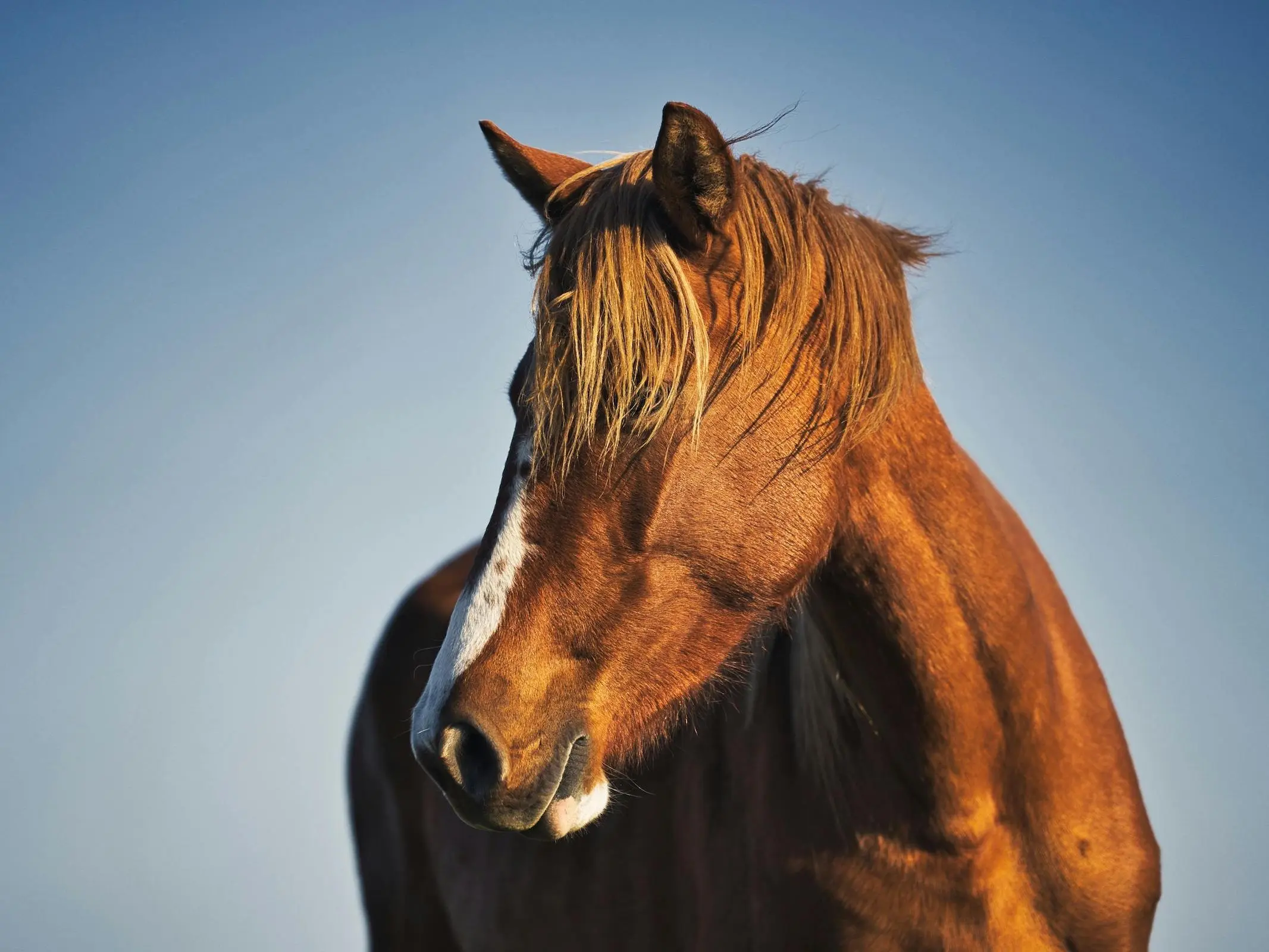
There are four base horse coat colors, black, chestnut, bay and brown. These four base colors along with various modifiers and dilutions provide us the vast spectrum of solid horse coat colors. The chestnut base can be found in all breeds and is caused by a gene called the extension or E locus, which causes the production of red phaeomelanin pigment.
Basic Chestnut
Chestnut horses (can also be called sorrel) have no black hairs, they only display various shades of red throughout their body, although they may have white markings on their face or legs. Chestnuts come in a wide variety of red body shades and their mane and tail may range differently. While they provide a wide spectrum of reds, breeding two chestnuts will always result in a chestnut foal.
Chestnut Breeds
Although most breeds can have a chestnut coat, there are a few that are specifically known for their fiery red color. Including the Budyonny, Suffolk Punch, Finnhorse, Comtois and Gidran. Although most of them can be found in other colors, many of them are bred for this lovely red.
Chestnut Shades
There is a rainbow of reds in the chestnut family, but they all fall under one of four categories. Luckily the chestnut colors are slightly different genetically, which provides us a rather tidy way to reference them. Traditionally how chestnut colored horses are categorized can vary between countries and breeds, regardless of their genetics.
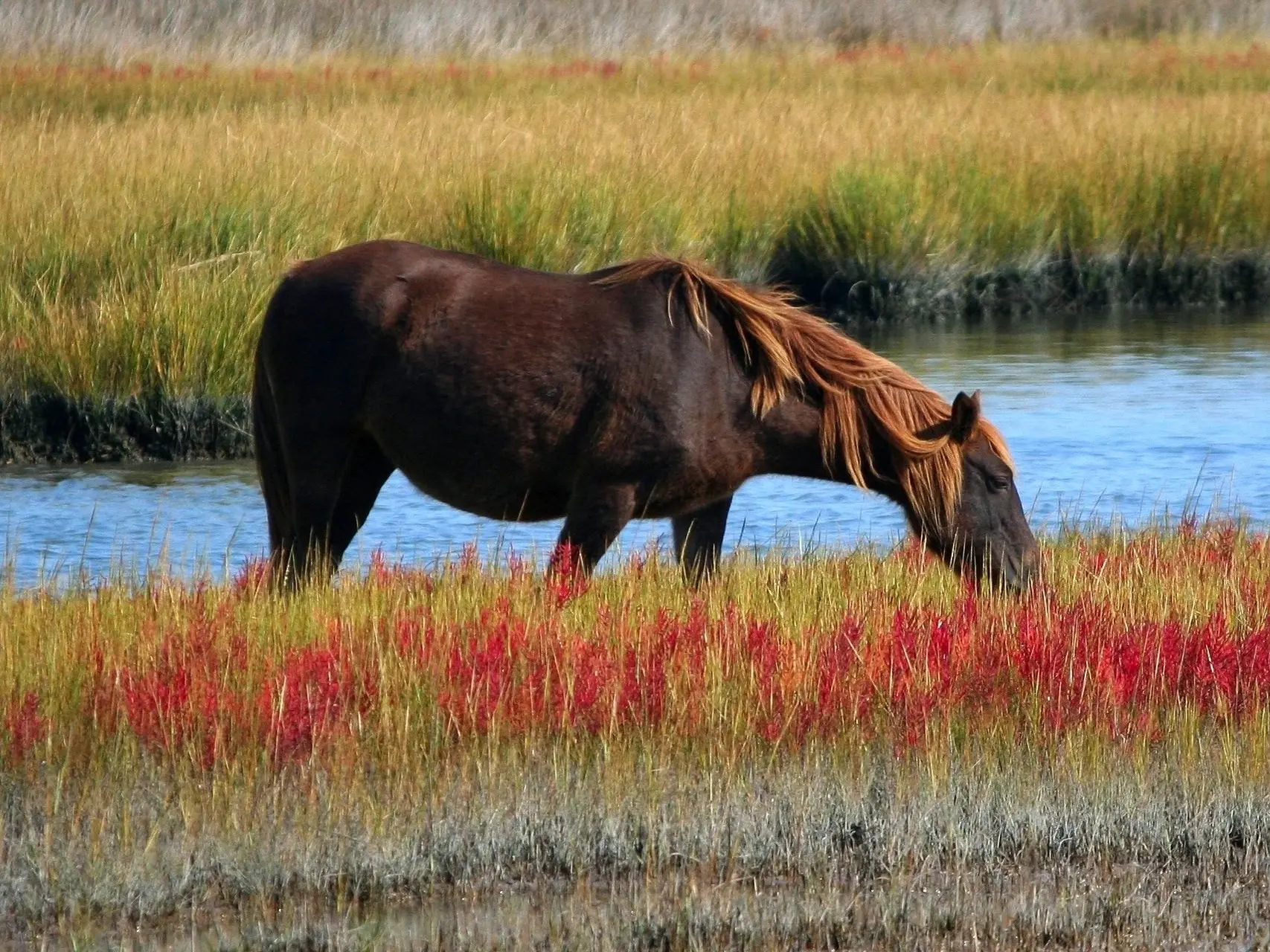 Liver
LiverRange in shade from almost black to a dark brick red, mane and tail color can be uniform, lighter or darker than the body.
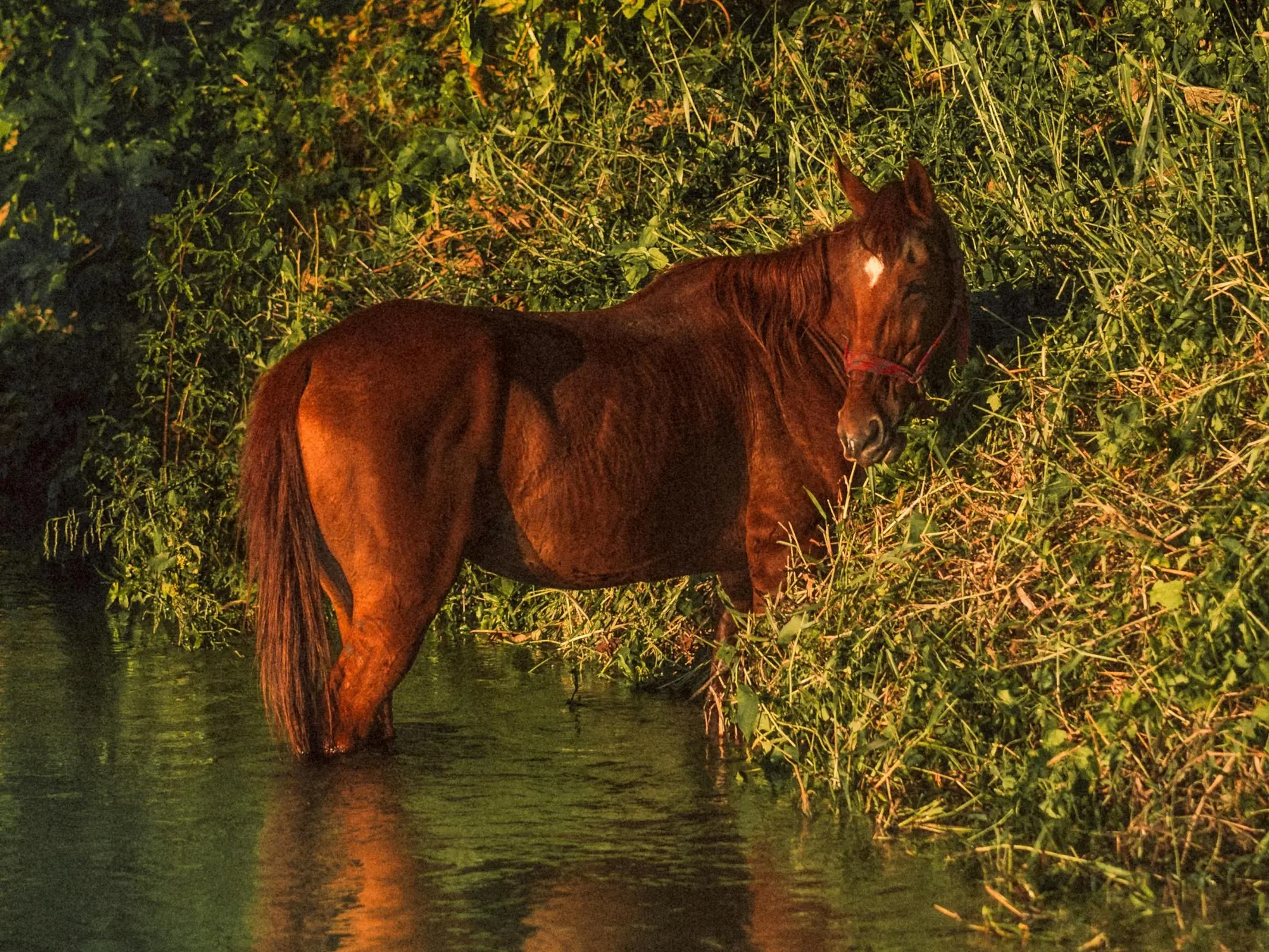 Red
RedRed chestnut is a fiery color, ranging from a bright bold red to light red. Mane and tail can be varying degrees of red.
Modifiers on Chestnut Coats
Horse coat modifiers have affect the base color and a chestnut base is affected by a wider variety of modifiers than a black base, with some spectacular results.
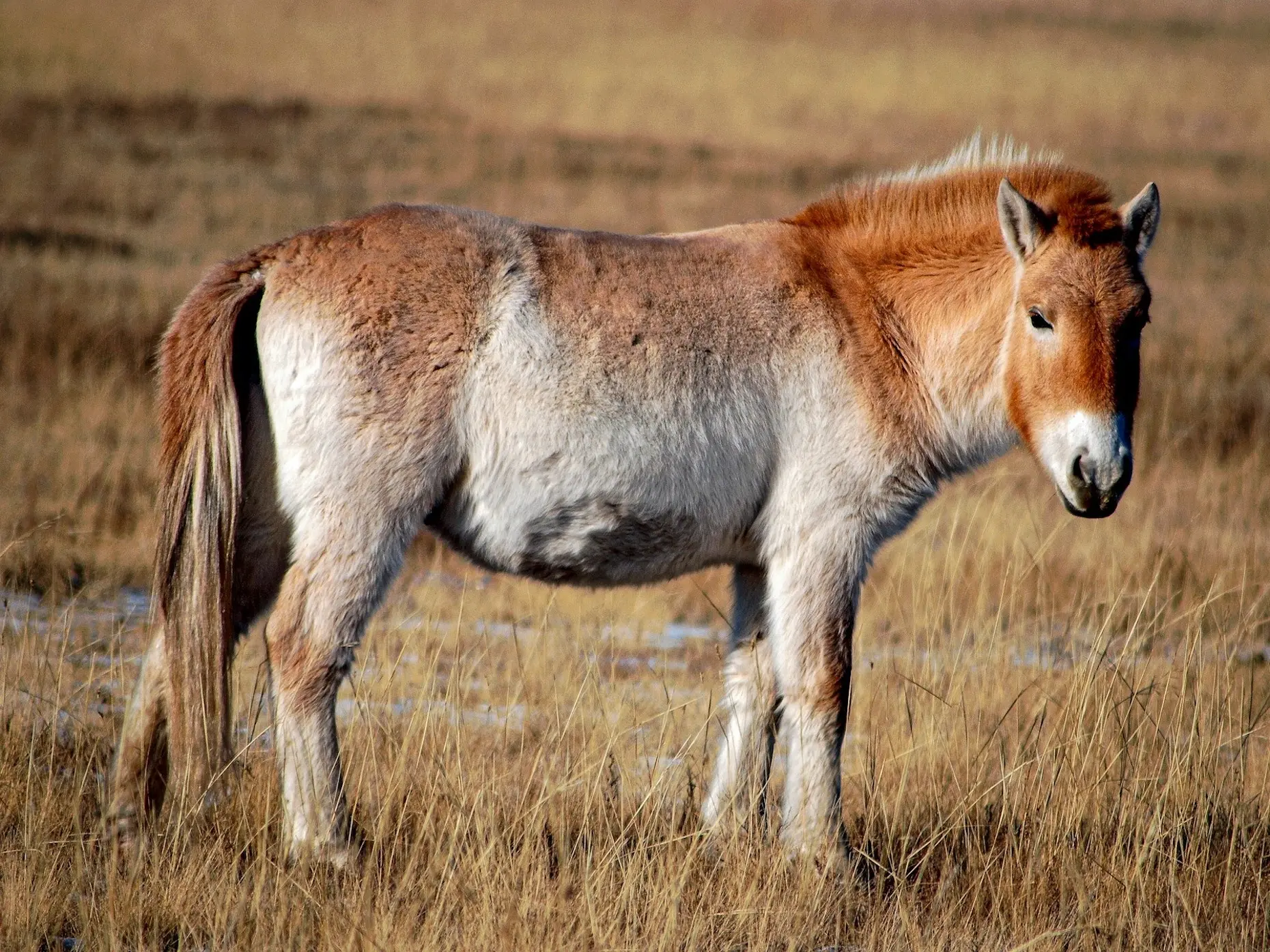 Mealy or Pangare Modifier
Mealy or Pangare ModifierThe pangare modifier only affects certain parts of a horse, lightening the muzzle, belly, flank, elbow and eyes.
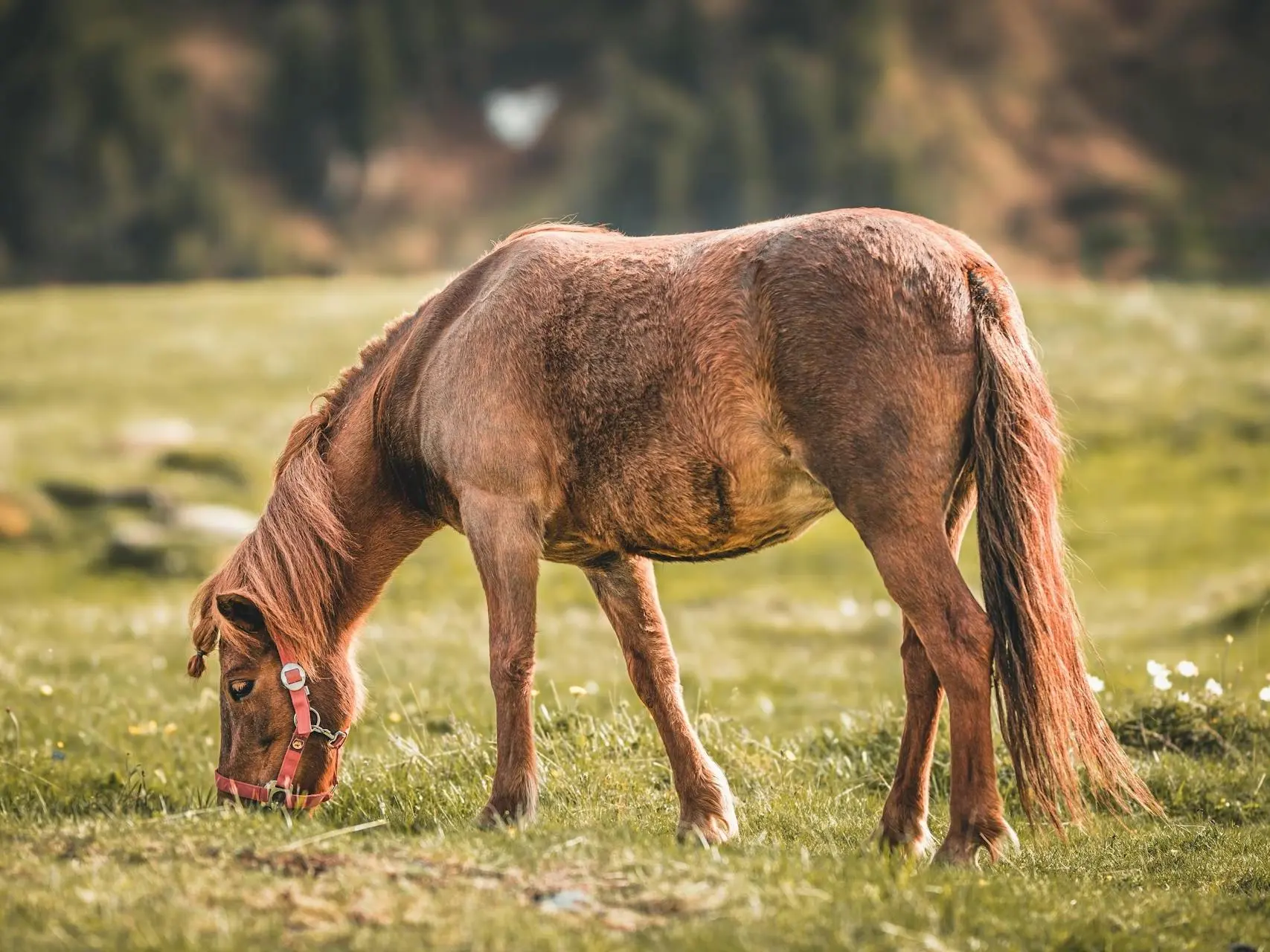 Sooty or Smutty Modifier
Sooty or Smutty ModifierThought to be natural camouflage, the sooty modifier causes black hairs to grow mainly along the topline and points.
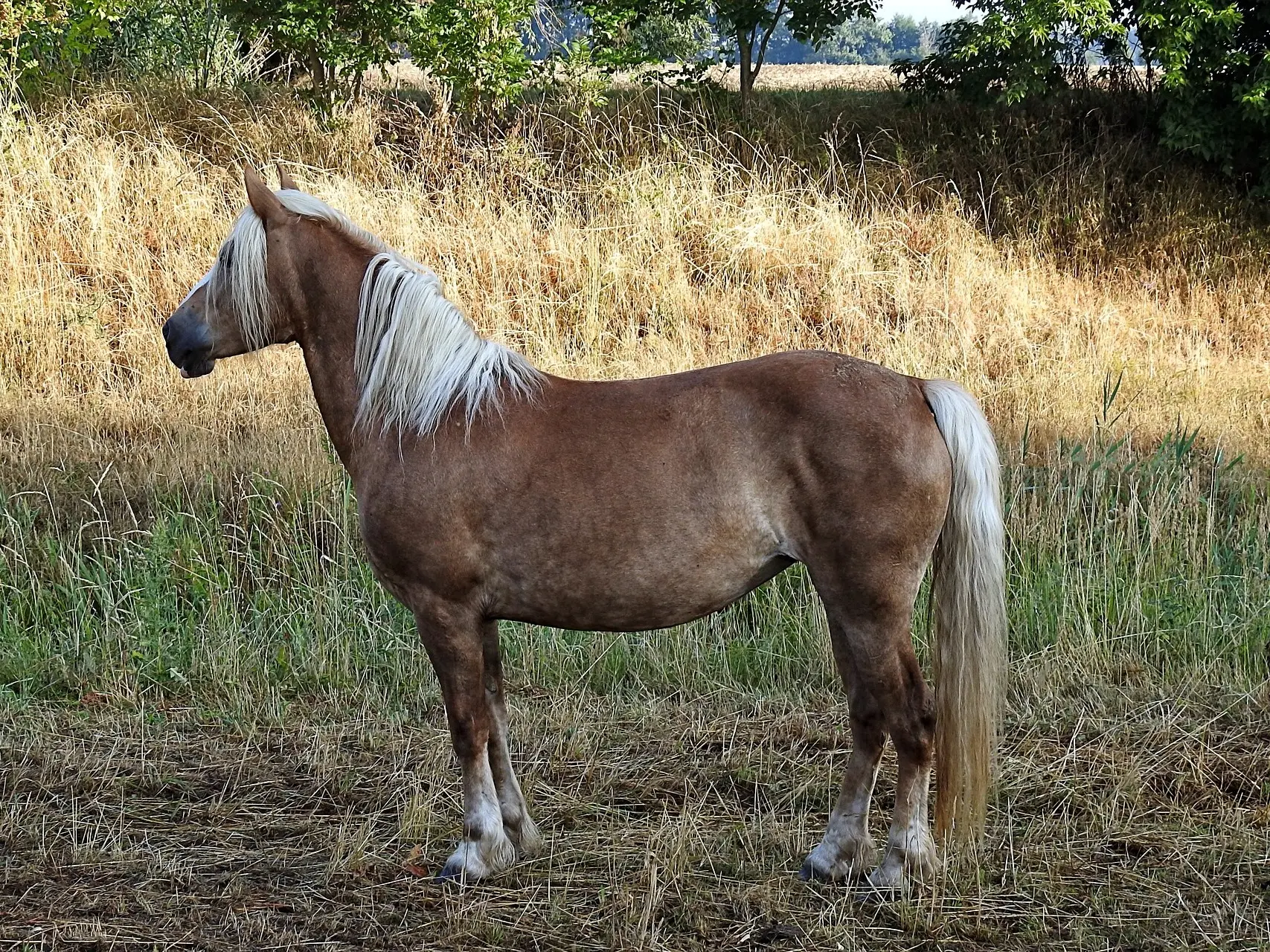 Flaxen Modifier
Flaxen ModifierThe flaxen modifier only affects mane and tail color, making it often pure white. Can be mistaken for palomino.
Dilutions on Chestnut Coats
Chestnut animals are affected by most of the known coat dilution genes, creating a huge variety of lovely chestnut based shades.
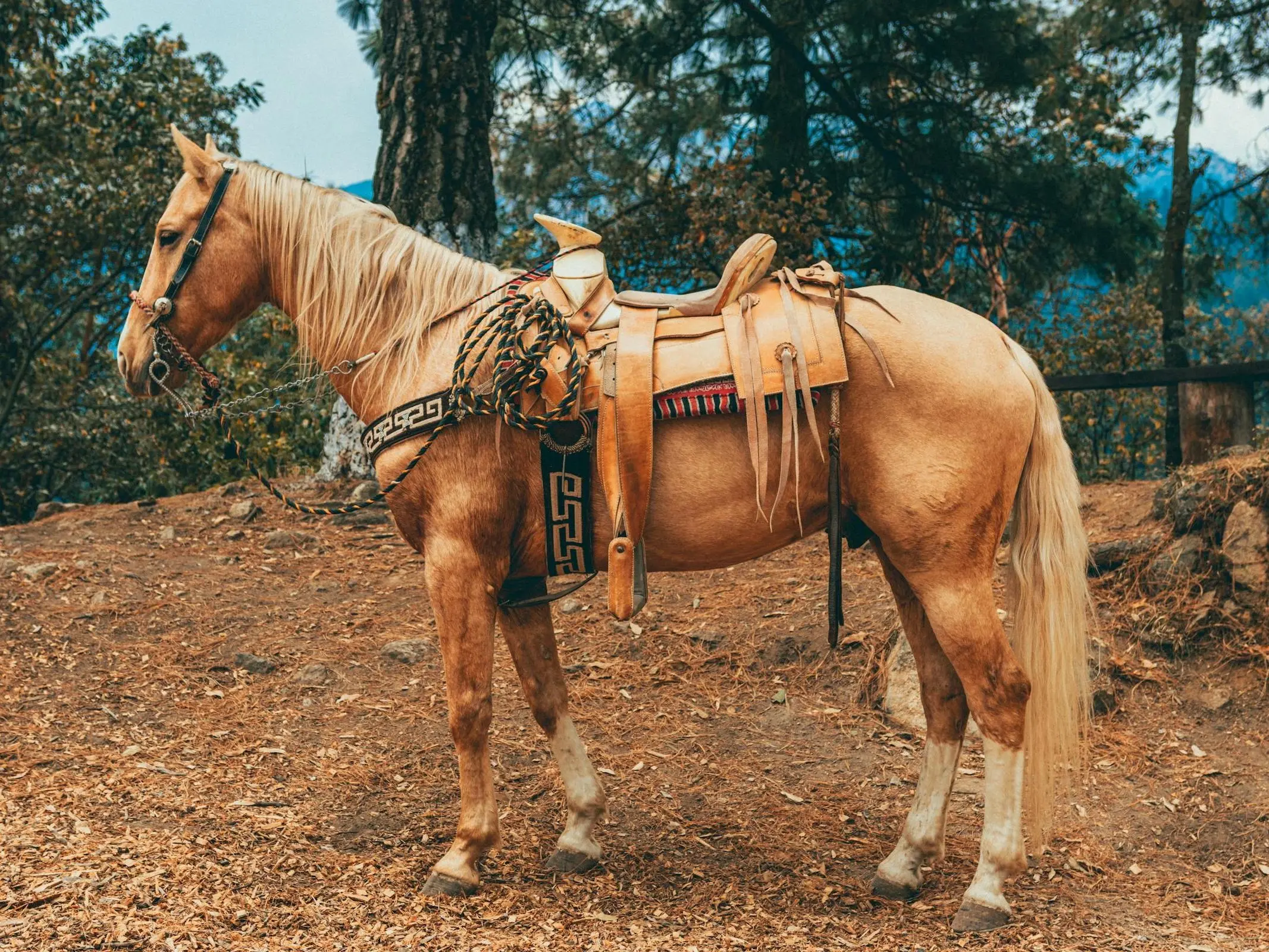 Single Cream Modifier
Single Cream ModifierA single dose of the cream modifier creates palominos, shades of golden body hair with white mane and tail, often displaying dapples on the body.
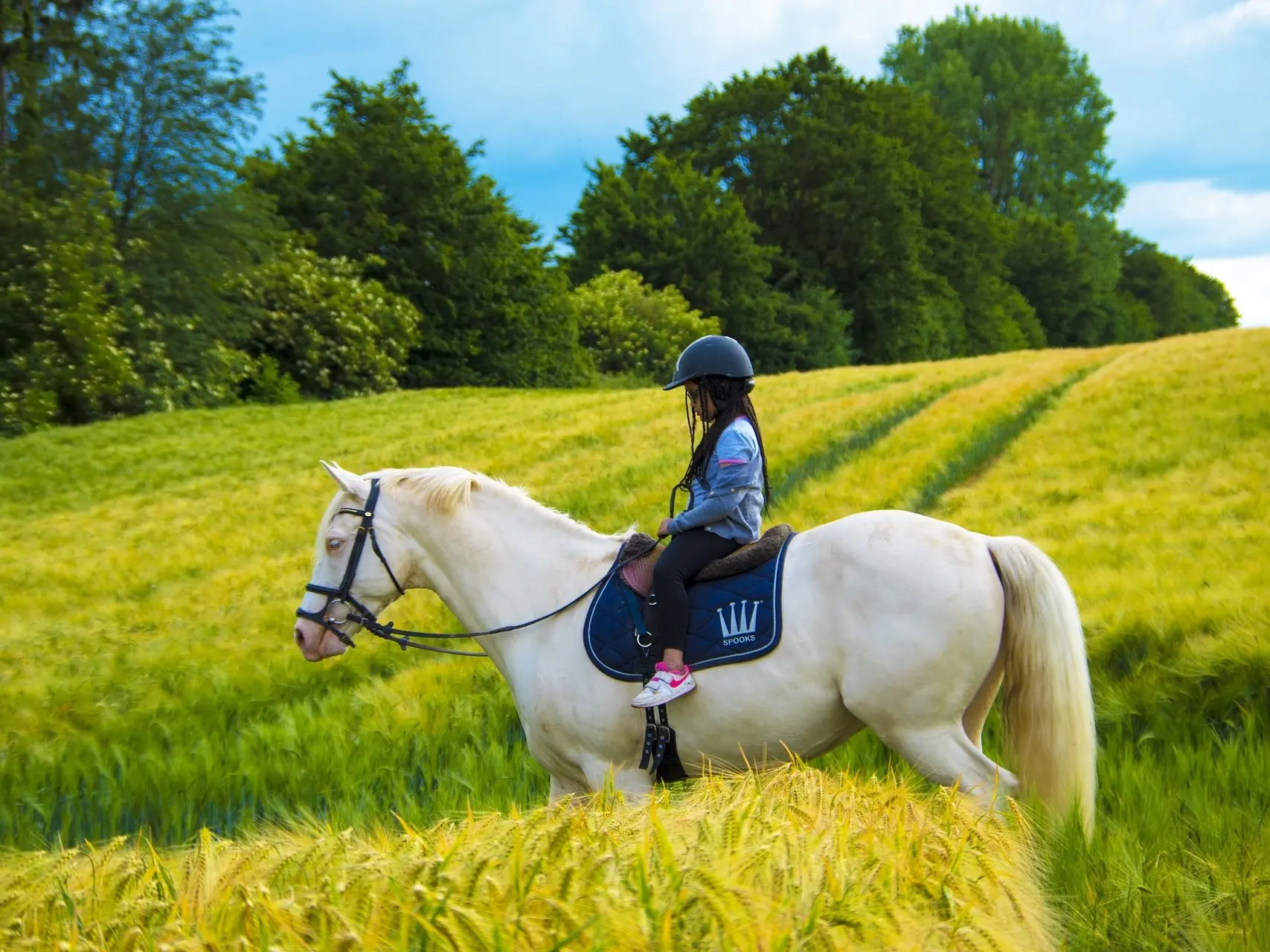 Double Cream Modifier
Double Cream ModifierA double dose of the cream modifier creates cremellos, pure white animals with pink skin and blue eyes. This might be called an albino (but it isn’t).
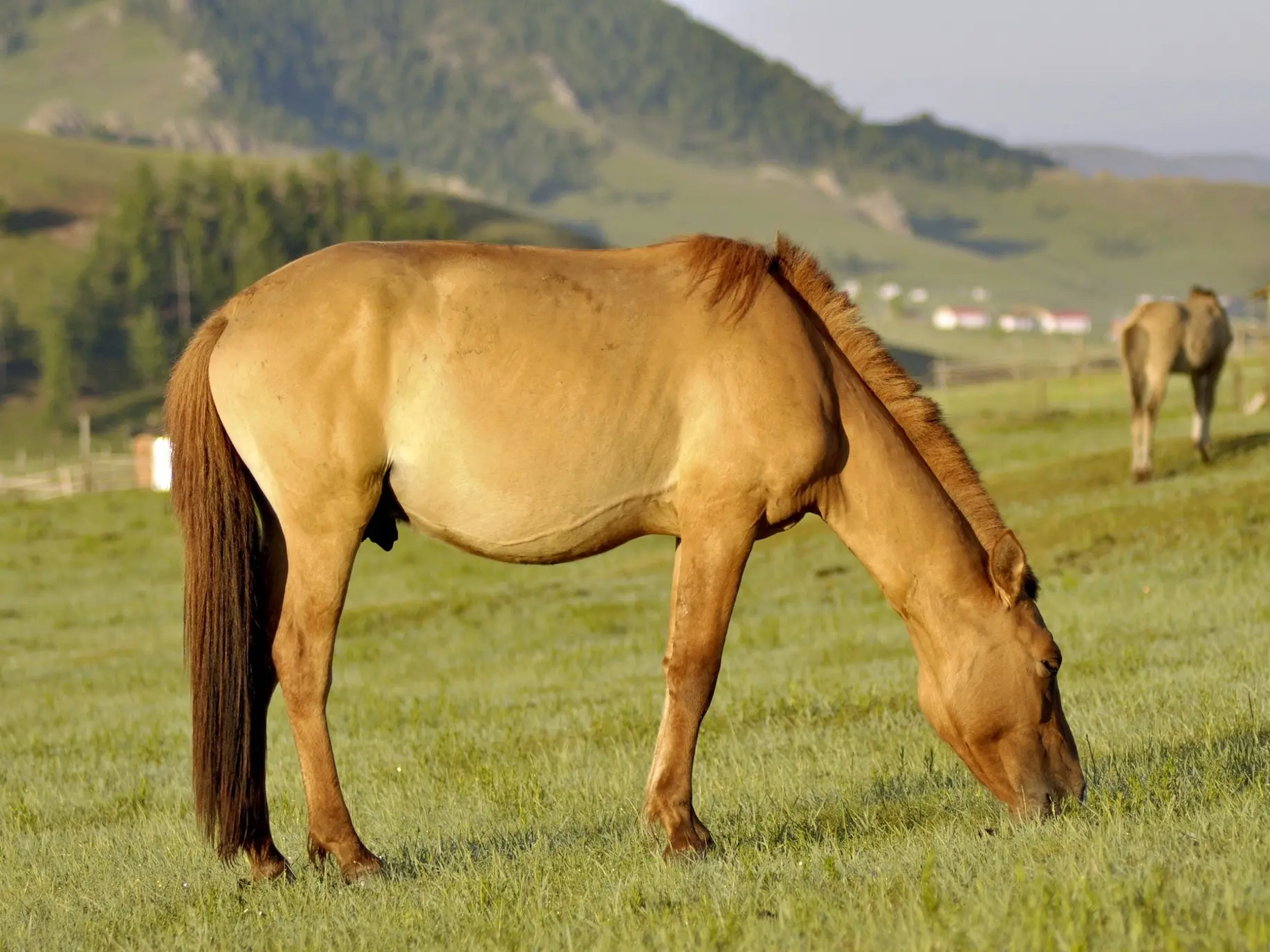 Dun Dilution
Dun DilutionThe dun dilution on a chestnut animal creates a a light red color. A dun animal can be easily recognized by the stripe down the their back.
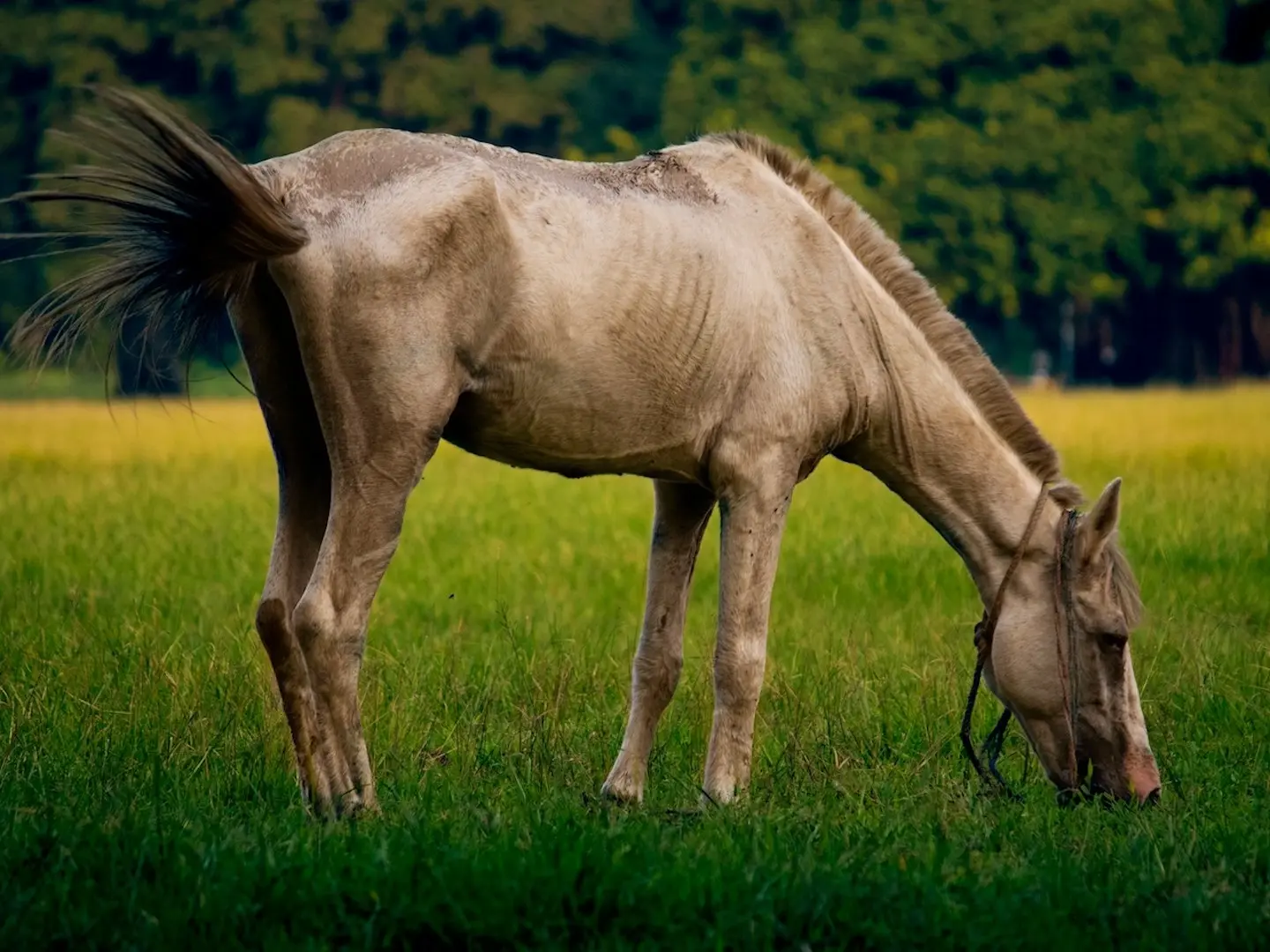 Champagne Dilution
Champagne DilutionChampagne coats can have an almost metallic sheen, freckles and light eyes, creating an animal similar to pale palomino coloring.
White Patterns on Chestnut Coats
The lovely white patterns can be found across any coat color that carries the genetics for them. Chestnut bases makes for some gorgeous patterns in all of them.
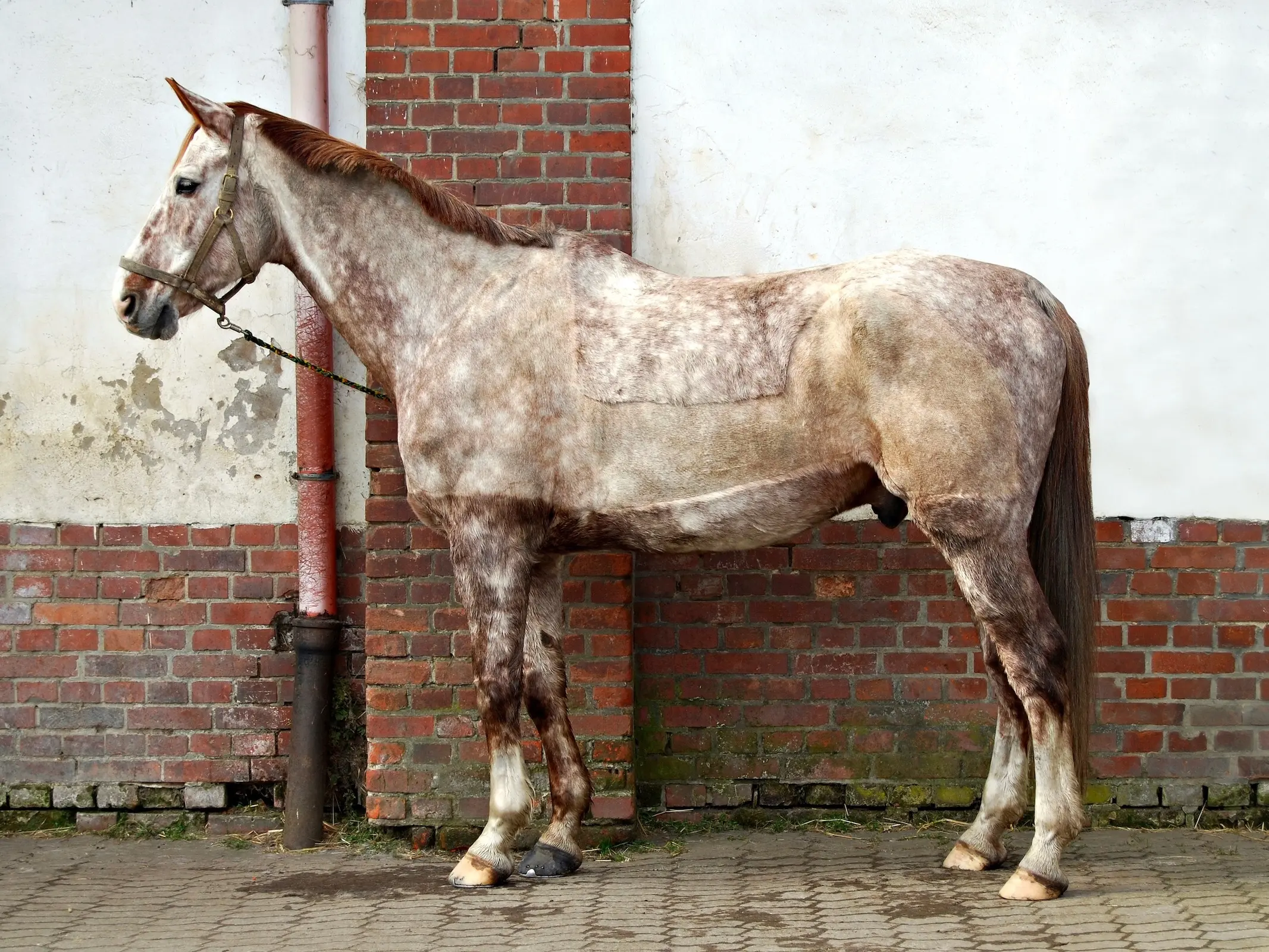 Grey White Pattern
Grey White PatternGrey horses are born chestnut and become white as they age. While young, rose grey horses have a lovely pink color.
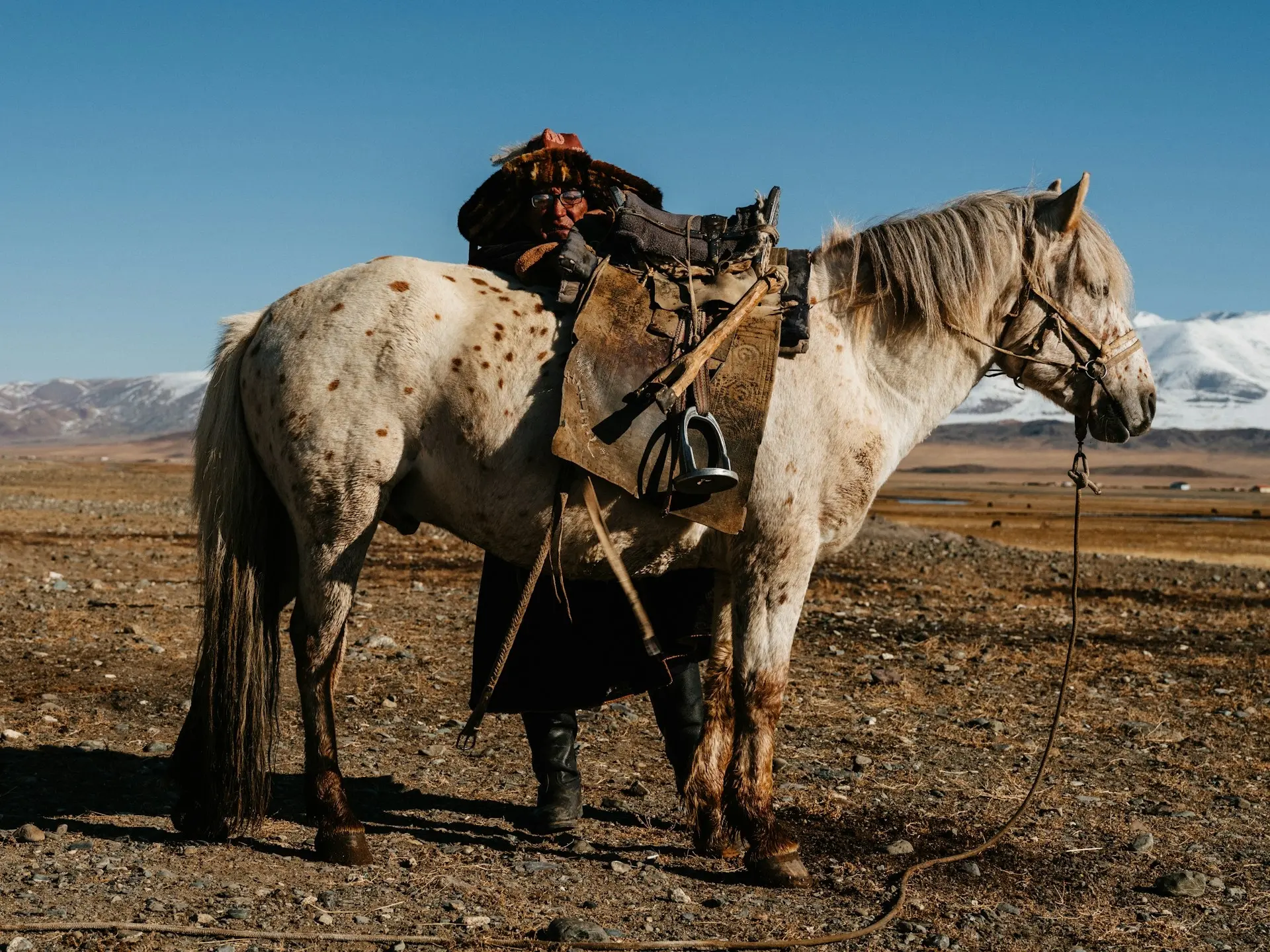 Appaloosa White Pattern
Appaloosa White PatternAn expression of the leopard complex, appaloosa white patterns display a huge variety of spotted patterns.
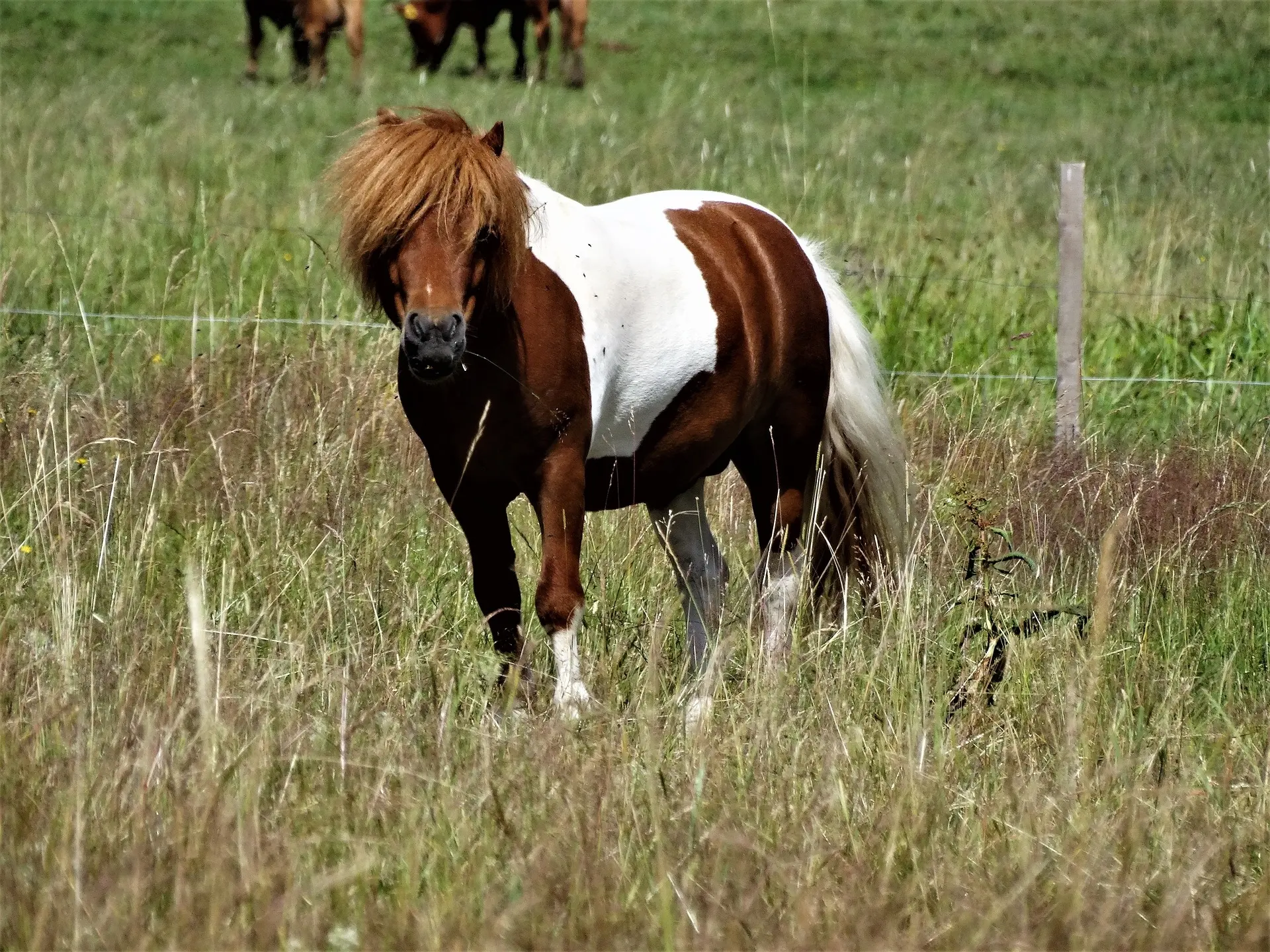 Pinto White Pattern
Pinto White PatternThe pinto white pattern on a chestnut base is called a skewbald and comes in an array of contrasting designs.
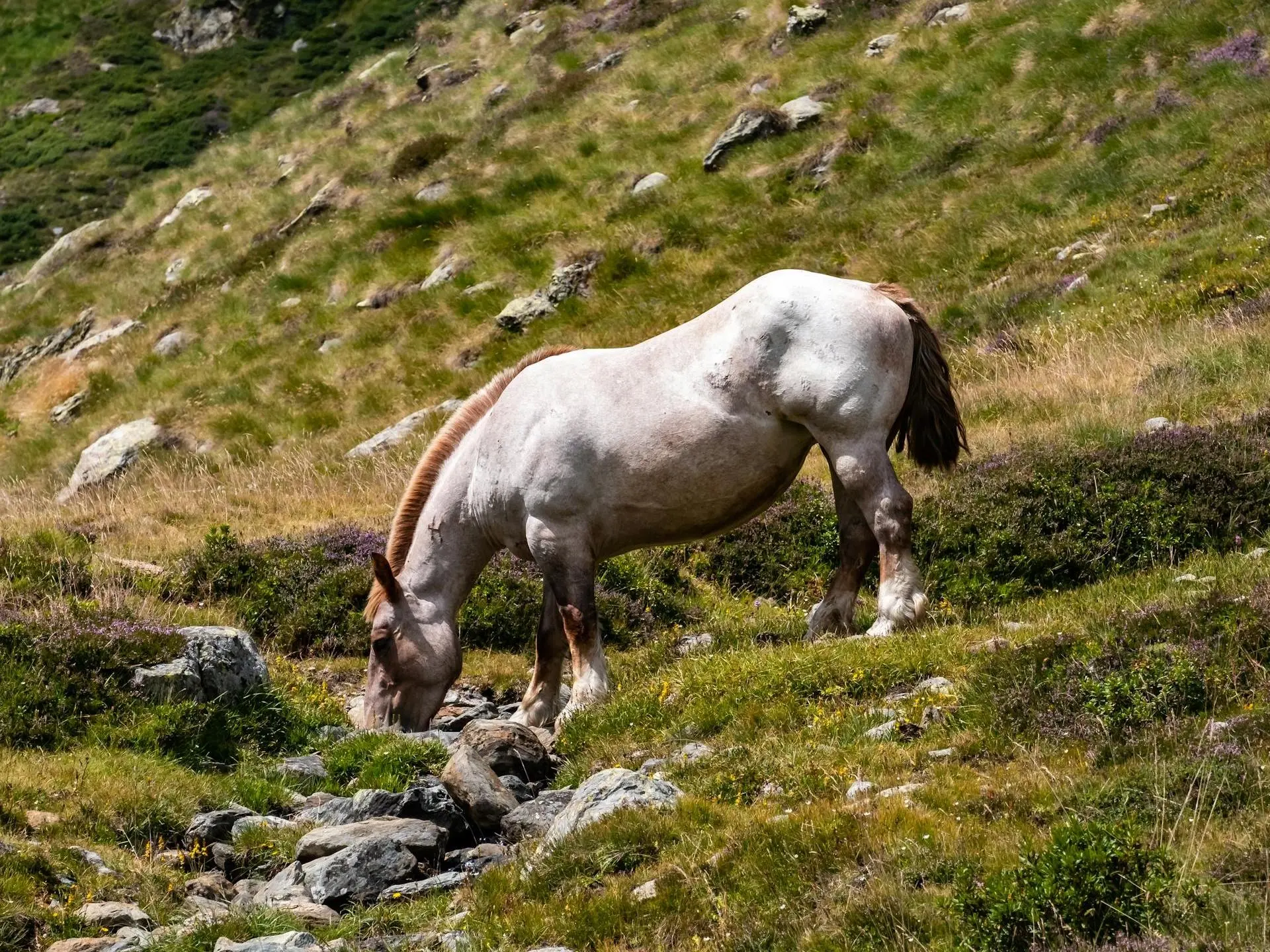 Roan white pattern
Roan white patternThe roan white pattern on a chestnut coat creates an almost pink color and are generally called strawberry roans.
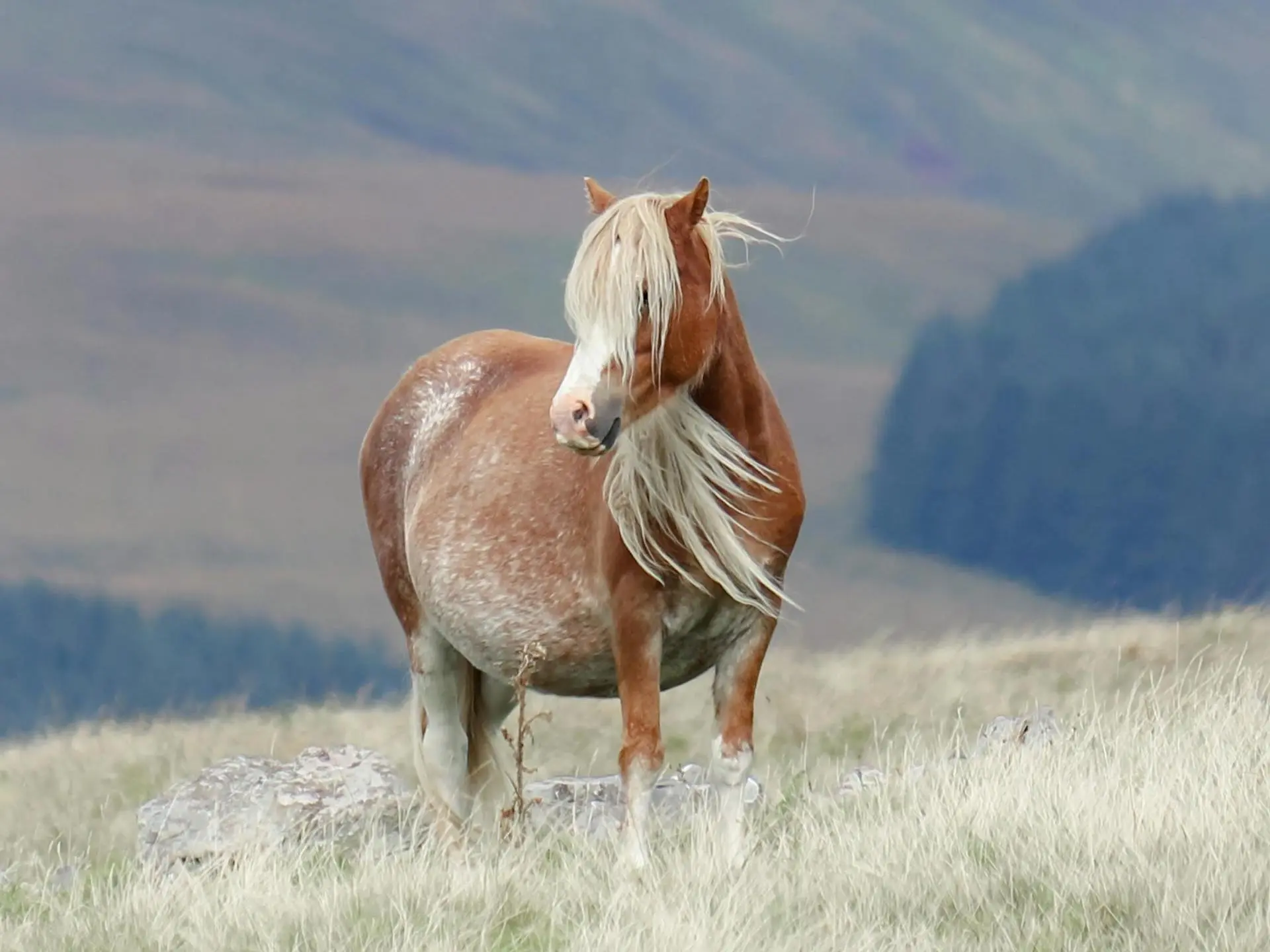 Rabicano White Pattern
Rabicano White PatternThe rabicano white pattern on a chestnut coat is similar to roan, a skunk tail is the best way to distinguish rabicano.
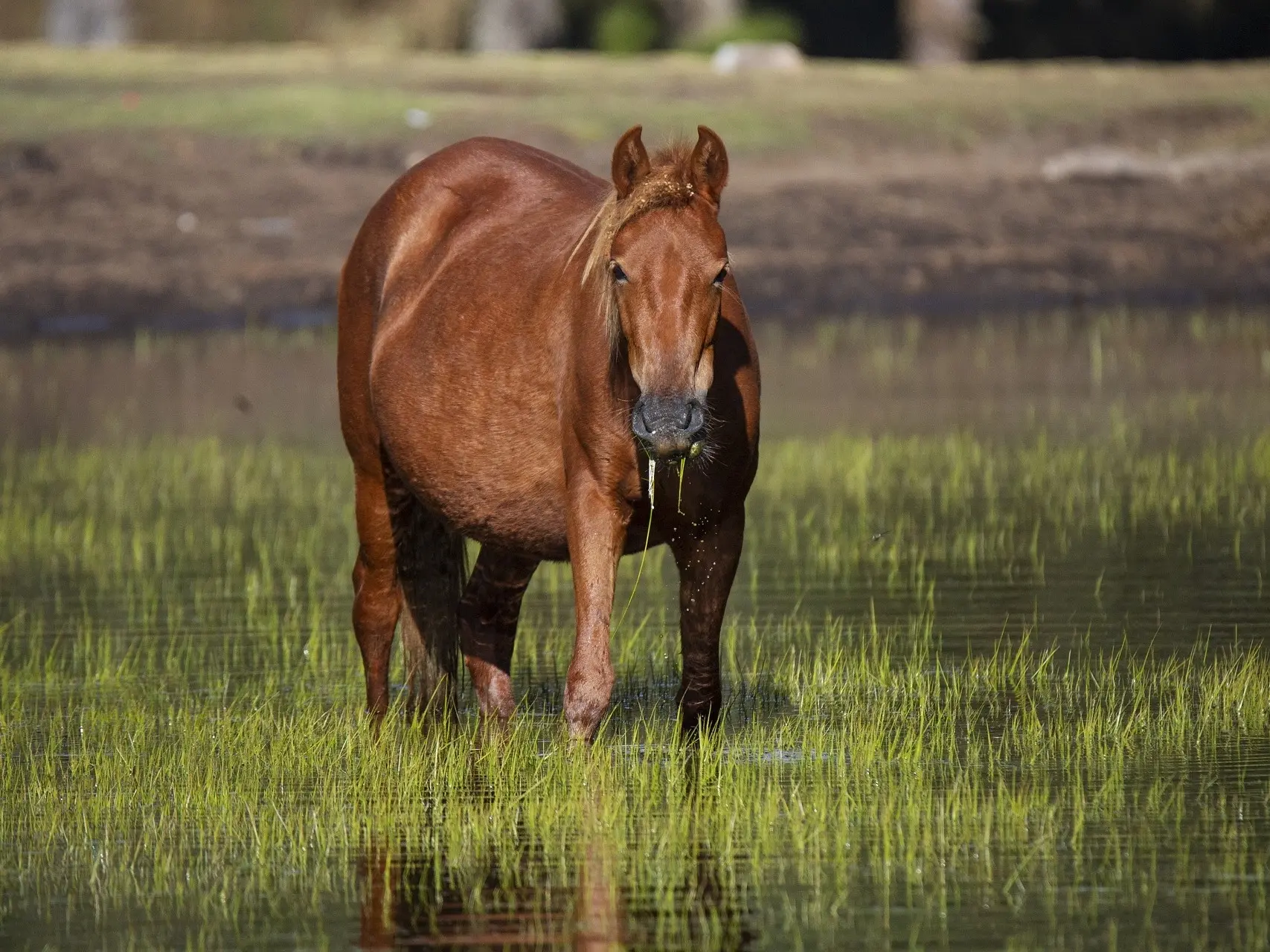 Standard
Standard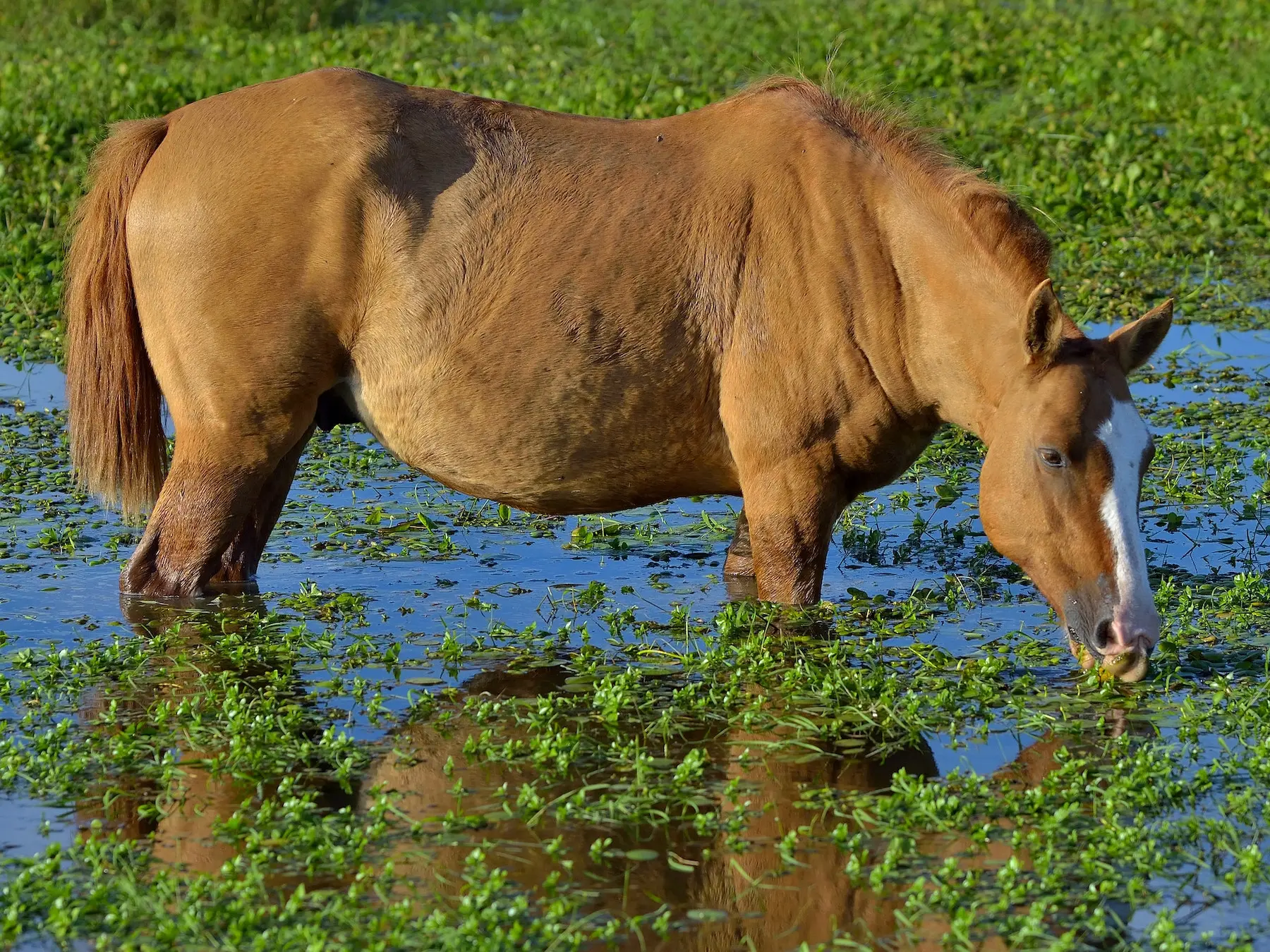 Sandy
Sandy